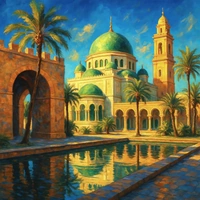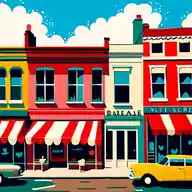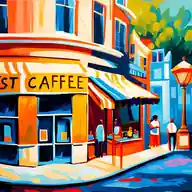Tripoli, Libya, stands out with its unique blend of Ottoman, Italian, and Arab architecture enveloping the mesmerizing Mediterranean coastline. The city's ancient medina is a labyrinth of vibrant souks and artisans crafting traditional Libyan wares, rooted in centuries-old Berber traditions. Tripoli’s Red Castle Museum, rich with antiquities, tells tales from Roman, Phoenician, and Byzantine eras, offering an unparalleled window into the region's multi-layered history amidst tumultuous modern narratives.

Culture & Entertainment

Shopping & Local Markets

Accommodation & Living

General City Overview

Travel & Transportation
Notable points about Tripoli
- **Historical Significance**: Tripoli is home to a wealth of ancient history and archaeological sites, including the Arch of Marcus Aurelius, which dates back to the Roman era. This makes it an ideal destination for history enthusiasts interested in exploring the remnants of empires that shaped the Mediterranean region.
- **Cultural Diversity**: The city embodies a rich tapestry of cultures due to its historical connections with various civilizations, including the Berbers, Phoenicians, Greeks, Romans, and Ottomans. This diversity is reflected in its cuisine, language, and traditions, making Tripoli a melting pot of cultural experiences.
- **Architectural Blend**: Tripoli's unique architectural landscape ranges from ancient ruins to Italian colonial buildings and modern structures, showcasing a blend of the ancient with the modern. This contrast is perfect for architecture buffs keen on studying different styles in one city.
- **Mediterranean Coastline**: Tripoli boasts a scenic Mediterranean coastline, appealing to those who appreciate leisurely strolls along the sea or enjoy water-based activities. The Corniche seaside promenade offers stunning views and a chance to experience the city's vibrant atmosphere.
- **Thriving Souks**: The city's bustling souks, particularly the Souk al-Mushir, offer an authentic shopping experience with local crafts, textiles, and spices. These markets are ideal for families and tourists looking to immerse themselves in the local culture and take home unique souvenirs.
- **Cuisine**: Tripoli's culinary scene offers delectable traditional Libyan dishes, incorporating fresh seafood, vibrant spices, and influences from Mediterranean and Middle Eastern cuisines. Food enthusiasts will find unique dishes that are not widely available in other parts of Libya or the world.
- **Urban Green Spaces**: Despite being a bustling city, Tripoli has ample green spaces, such as the popular Martyrs' Square, where locals and visitors alike can enjoy leisurely outings. This feature is valuable for older adults seeking relaxation and a chance to soak in the local ambiance.
- **Tripolitanian Hospitality**: The city's reputation for warm hospitality makes it a welcoming destination for solo travelers who wish to engage with locals and learn about their way of life. This friendliness sets Tripoli apart from other cities, offering a more personal travel experience.
- **Religious and Cultural Harmony**: Tripoli showcases a harmonious blend of Islamic heritage with other cultural influences. The city's mosques, such as Gurgi Mosque, attract those interested in religious architecture and interfaith historical narratives.
- **Economic Hub**: As the capital and largest city, Tripoli serves as Libya's economic and commercial center. This prominence differentiates it from other Libyan cities, making it a focal point for business travelers and entrepreneurs looking to tap into emerging markets in North Africa.






















































































